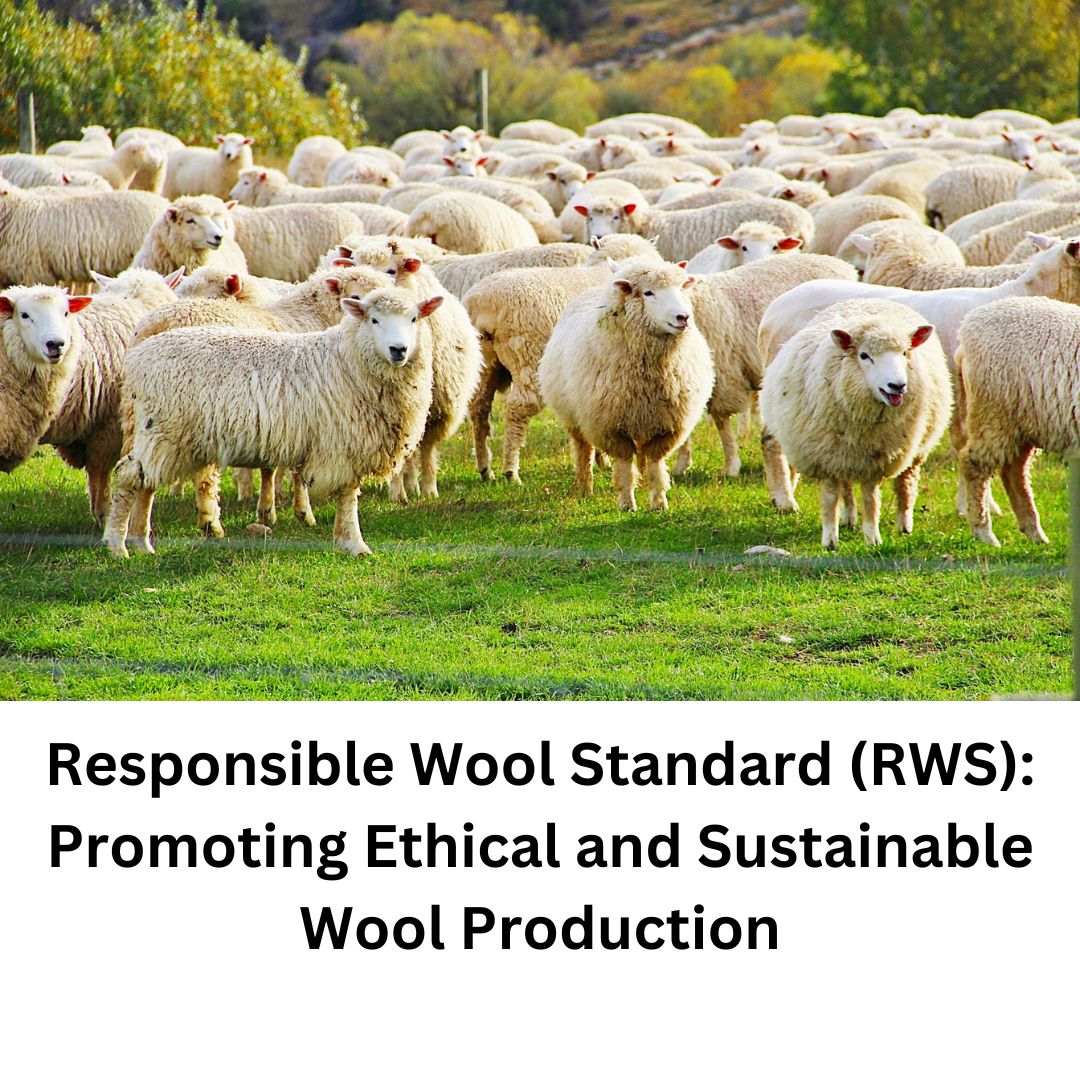Blog Details

Responsible Wool Standard (RWS): Promoting Ethical and Sustainable Wool Production
In today’s era of sustainability and conscious consumerism, industries across the globe are redefining their supply chains to ensure ethical, transparent, and eco-friendly practices. The textile and apparel industry is no exception. Among the certifications that foster responsible practices in wool production, the Responsible Wool Standard (RWS) stands out as a globally recognized certification ensuring animal welfare and sustainable land management.
This article explores the Responsible Wool Standard, its importance, benefits, certification process, and why brands and manufacturers are increasingly adopting it.
What is the Responsible Wool Standard (RWS)?
The Responsible Wool Standard (RWS) is an independent, voluntary certification developed by Textile Exchange, a global non-profit organization focused on sustainability in the textile industry. The RWS ensures that wool comes from farms that meet strict animal welfare standards and land management practices, ensuring the well-being of sheep and the environment they live in.
RWS certification applies to the entire supply chain, from farms to the final product, promoting transparency, traceability, and accountability at every step. This means consumers can trust that the wool products they purchase are sourced responsibly and ethically.
Core Principles of RWS
The RWS certification revolves around two main principles:
- → Animal Welfare:
- No mulesing practices.
- Adequate food, water, and shelter.
- Proper health management and veterinary care.
- Humane handling, shearing, and transportation processes.
- → Land Management and Sustainability:
- Maintaining soil health and fertility.
- Protecting biodiversity and ecosystems.
- Preventing overgrazing to avoid land degradation.
- Promoting long-term sustainability for future generations.
Why RWS Matters in the Textile Industry
- → Consumer Trust: RWS certification assures buyers that the wool in their garments or textiles is ethically sourced and eco-friendly.
- → Animal Welfare Advocacy: Brands adopting RWS-certified wool show commitment to humane practices.
- → Environmental Responsibility: Responsible land management reduces environmental impact while preserving ecosystems.
- → Competitive Advantage: RWS certification helps brands stand out in a sustainability-focused market.
Benefits of RWS Certification
- → ✅ For Farmers:
- Recognition for sustainable farming practices.
- Access to global markets demanding certified, ethical products.
- Support and guidance for improving land and animal management.
- → ✅ For Brands and Retailers:
- Builds trust and brand reputation with eco-conscious customers.
- Provides traceability, ensuring transparency in sourcing.
- Supports corporate social responsibility (CSR) goals.
- → ✅ For Consumers:
- Assurance that products are ethically produced.
- Access to quality wool that meets both performance and sustainability standards.
The RWS Certification Process
- → Farm Level Assessment: Farms undergo evaluation for animal welfare and land management compliance.
- → Chain of Custody Verification: Every stage of the supply chain is audited to ensure traceability.
- → Auditing and Monitoring: Independent third-party audits verify continued compliance.
- → Certification Renewal: Certificates are valid for one year and require periodic renewal.
Industries and Applications of RWS-Certified Wool
- → Apparel – Sweaters, jackets, suits, and fashion wear.
- → Home Textiles – Carpets, blankets, bedding, and upholstery.
- → Footwear and Accessories – Shoes, gloves, scarves, and hats.
- → Luxury Brands – Used by high-end designers for ethical sourcing.
Global Adoption of RWS
Leading brands such as Patagonia, H&M, The North Face, and Zara have adopted RWS-certified wool to meet the rising demand for ethical fashion. This shift signifies a global movement toward more responsible textile sourcing and greater transparency in supply chains.
Challenges in Implementing RWS
- → Cost of Certification: Can be a barrier for small-scale farms.
- → Awareness and Training: Stakeholders need education and support to meet standards.
- → Supply Chain Integration: Ensuring traceability across complex supply chains is challenging.
Despite these challenges, the benefits of RWS far outweigh the obstacles, making it an essential certification for the future of sustainable wool.
The Future of RWS
As sustainability continues to dominate the global textile landscape, the demand for RWS-certified products is set to rise. Innovations in technology, such as blockchain, are expected to enhance traceability and trust in certified supply chains.
With increased awareness and collaboration among brands, farmers, and certifiers, the Responsible Wool Standard is poised to become the global benchmark for ethical and sustainable wool production.
Why Choose Ascent Inspecta for RWS Certification
When it comes to obtaining Responsible Wool Standard (RWS) certification, partnering with a trusted certification body is crucial. Ascent Inspecta is a globally recognized certification and inspection provider with years of expertise in the textile and apparel sector.
- → Extensive experience in auditing and certification processes.
- → Global recognition and credibility across industries.
- → Skilled auditors with in-depth knowledge of RWS guidelines.
- → Comprehensive support from application to certification.
- → Timely, hassle-free, and cost-effective certification services.
With Ascent Inspecta, you can ensure smooth certification, enhance your brand reputation, and meet global sustainability expectations effortlessly.
Leave a Comment
We would love to hear your thoughts! Please leave your comment below:
